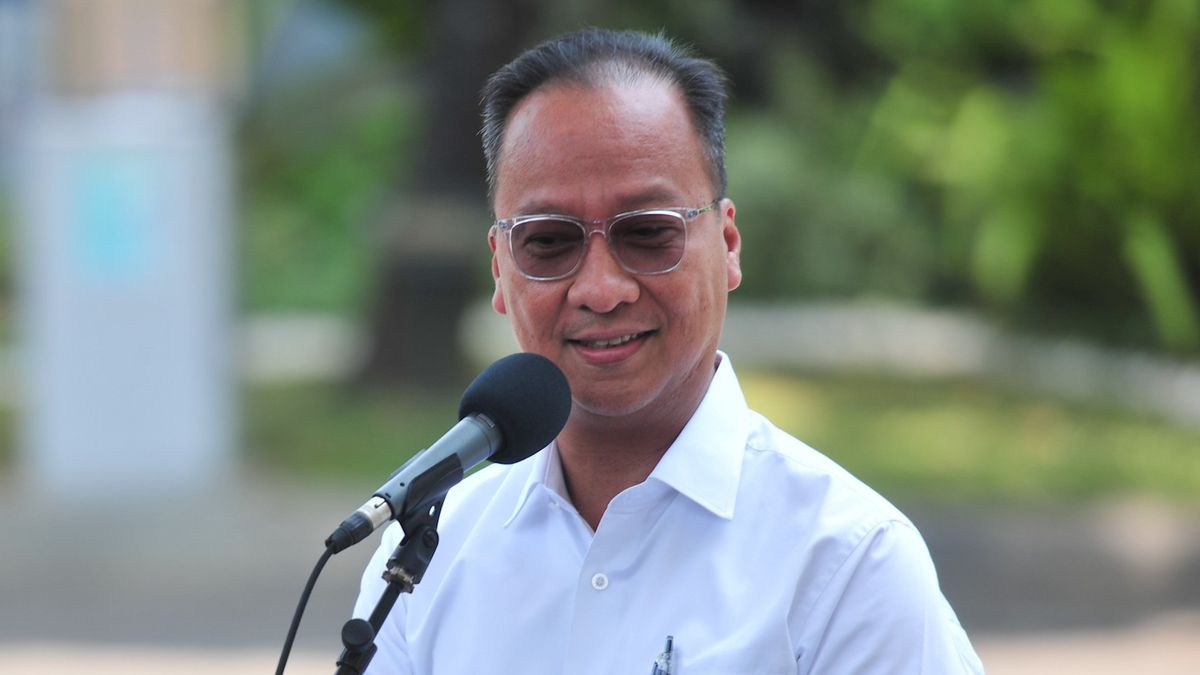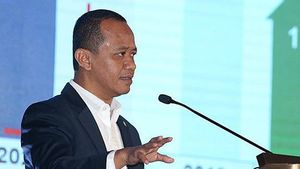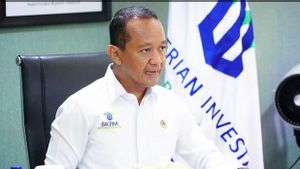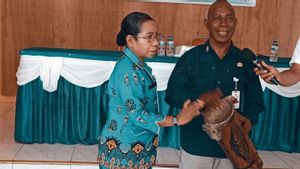JAKARTA - The Ministry of Industry (Kemenperin) said the production of electric cars in Indonesia was able to reduce the consumption of fuel oil or BBM by 7.5 million barrels. In fact, this environmentally friendly vehicle is also claimed to be able to reduce carbon gas emissions by 2.7 million tons.
Minister of Industry Agus Gumiwang Kartasasmita explained that the government will produce 600 thousand units of electric vehicles by 2030. Meanwhile, this number is in accordance with the roadmap that has been prepared to develop the electric vehicle (EV) industry.
"The government targets the production of electric cars and electric buses by 2030 to reach 600 thousand units, which is projected to reduce fuel consumption by 7.5 million barrels and reduce CO2 emissions by 2.7 million tons," he said in a written statement, quoted Wednesday, October 27.
Agus explained that the target set was in line with the Indonesian government's commitment to reducing greenhouse gas (GHG) emissions by 29 percent by 2030. This was in accordance with President Joko Widodo's (Jokowi) order in the Paris Agreement to anticipate climate change.
Agus said Indonesia's readiness to enter the era of electric vehicles is stated in Presidential Regulation (Perpres) Number 55 of 2019 concerning the Acceleration of the Battery-Based Electric Motor Vehicle (KBLBB) Program for Road Transportation.
Furthermore, he said the Ministry of Industry had issued policies related to car specifications, roadmaps, and the calculation of the domestic component level (TKDN).
"This is intended as a guide or explanation for automotive industry stakeholders regarding strategies, policies, and programs in order to achieve Indonesia's target as a production and export base for electric vehicle hubs," he said.
SEE ALSO:
According to Agus, the electric vehicle import scheme is also regulated in the regulation. The way to do this is by importing fully decomposed and incompletely decomposed vehicles as part of the development stage of the KBLBB industrialization in Indonesia.
This scheme, continued Agus, is aimed at obtaining added value in the form of increasing the value of TKDN through gradual deepening of manufacturing until 2030.
"Based on the KBLBB Development Roadmap, industrial development begins through the Completely Knock Down (CKD) scheme until 2024, followed by Incompletely Knock Down (IKD) and part-by-part importation," he said.
The English, Chinese, Japanese, Arabic, and French versions are automatically generated by the AI. So there may still be inaccuracies in translating, please always see Indonesian as our main language. (system supported by DigitalSiber.id)
















